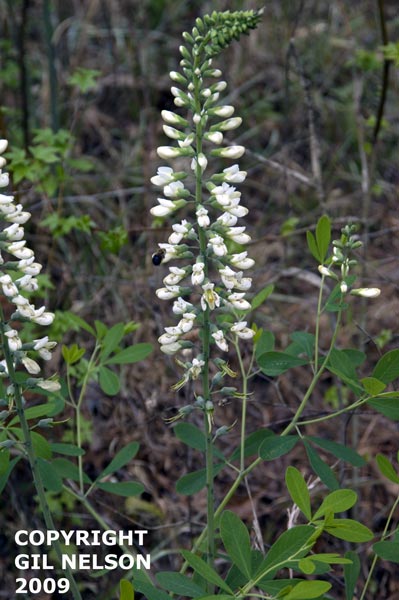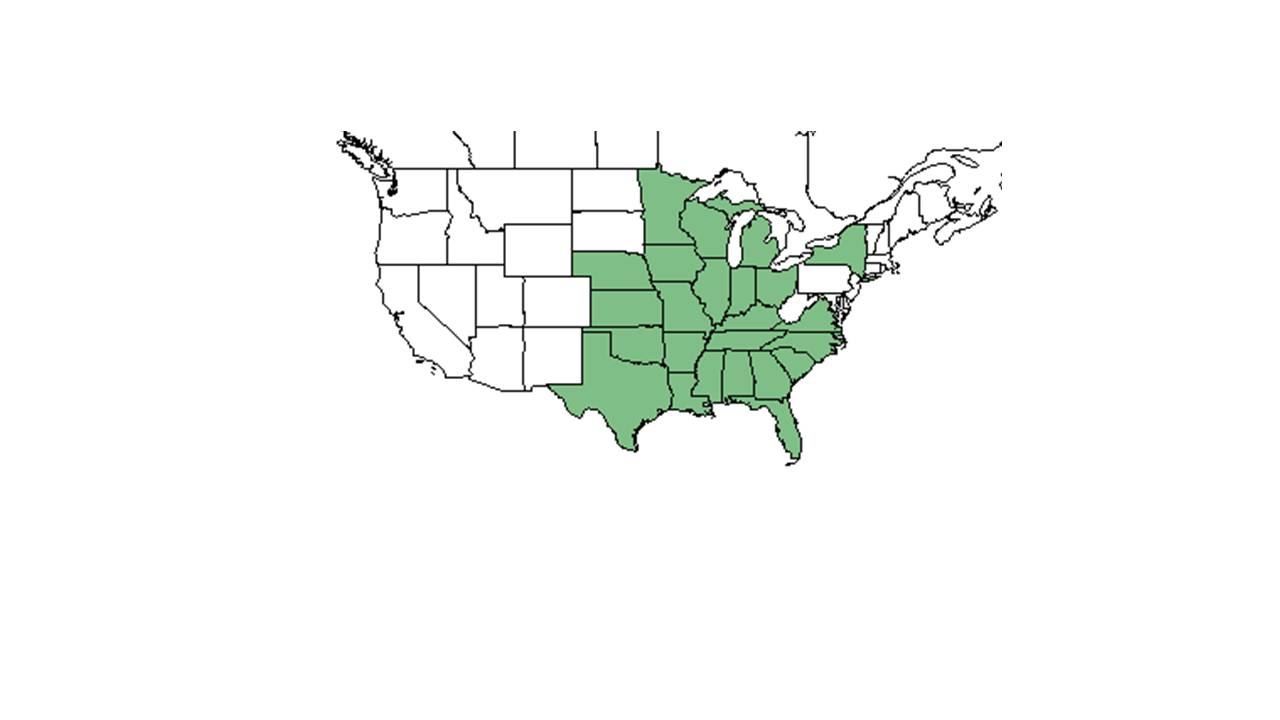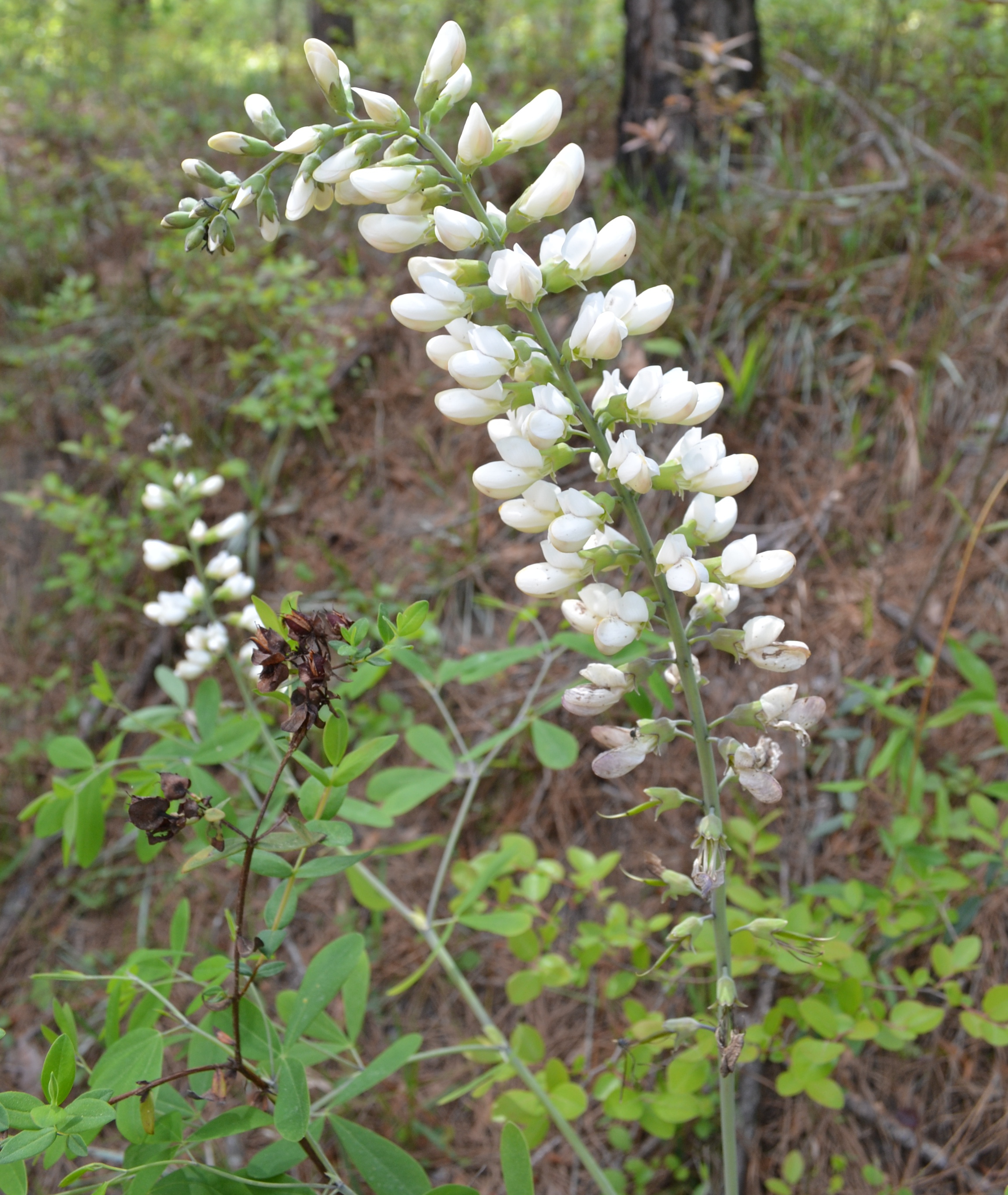Difference between revisions of "Baptisia alba"
| Line 17: | Line 17: | ||
| range_map_caption = Natural range of ''Baptisia alba'' from USDA NRCS [http://www.plants.usda.gov Plants Database]. | | range_map_caption = Natural range of ''Baptisia alba'' from USDA NRCS [http://www.plants.usda.gov Plants Database]. | ||
}} | }} | ||
| + | Common Name: white wild indigo | ||
| + | |||
==Description== | ==Description== | ||
<!-- Basic life history facts such as annual/perrenial, monoecious/dioecious, root morphology, seed type, etc. --> | <!-- Basic life history facts such as annual/perrenial, monoecious/dioecious, root morphology, seed type, etc. --> | ||
| − | |||
==Distribution== | ==Distribution== | ||
Revision as of 13:42, 5 August 2015
| Baptisia alba | |
|---|---|

| |
| photo by Gil Nelson | |
| Scientific classification | |
| Kingdom: | Plantae |
| Division: | Magnoliophyta - Flowering plants |
| Class: | Magnoliopsida - Dicotyledons |
| Order: | Fabales |
| Family: | Fabaceae ⁄ Leguminosae |
| Genus: | Baptisia |
| Species: | B. alba |
| Binomial name | |
| Baptisia alba (L.) Farw. | |

| |
| Natural range of Baptisia alba from USDA NRCS Plants Database. | |
Common Name: white wild indigo
Contents
Description
Distribution
Ecology
Habitat
Baptisia alba is found in pine flatwoods, along the edges of mesic thickets and bottomland woodlands, in open upland pine-hardwood sand ridges, well-drained hardwood hammocks, and open upland woods (FSU Herbarium). It can also be found in some disturbed habitat, namely on moist roadsides and along hiking trails and railways (FSU Herbarium). This species appears in a range of light levels, from shady to sunny, and in mostly sandy soil types such as loamy sand and drying sandy loam (FSU Herbarium).
Phenology
This species has been observed flowering from February through July, and fruiting from May through July (FSU Herbarium).
Seed dispersal
Seed bank and germination
Fire ecology
It inhabits annually burned pinelands, which implies fire tolerance (FSU Herbarium).
Pollination
Use by animals
Diseases and parasites
Conservation and Management
Cultivation and restoration
Photo Gallery
References and notes
Florida State University Robert K. Godfrey Herbarium database. URL: http://herbarium.bio.fsu.edu. Last accessed: June 2014. Collectors: H. E. Ahles, L. C. Anderson, R. Athey, K. E. Blum, M. B. Brooks, J. R. Burkhalter, A. F. Clewell, D.S. Correll, R. F. Doren, W. H. Duncan, L. R. Fox, J. P. Gillespie, R. K. Godfrey, N. C. Henderson, R. H. Houk, G. R. Knight, R. Komarek, R. Kral, R. L. Lazor, R.S. Leisner, K. MacClendon, A. W. Macias, S. McDaniel, R. Mitchell, G. W. Ramsey, J. D. Ray Jr., L. M. Umbach, and R. L. Wilbur. States and Counties: Florida: Calhoun, Dixie, Escambia, Gadsden, Jackson, Jefferson, Lafayette, Leon, Madison, Suwannee, Taylor, Wakulla, and Washington. Georgia: Grady, Fannin, Lowndes, Taliaferro, Thomas, and White. Kansas: Franklin. Mississippi: Hancock and Panola. Missouri: Vernon. North Carolina: Stanly. South Carolina: Lancaster, Richland, and Sumter. Texas: Red River.
